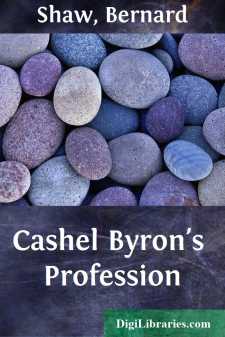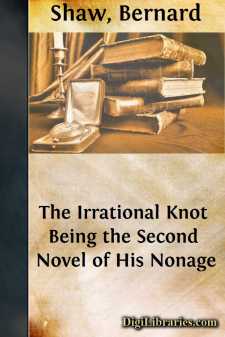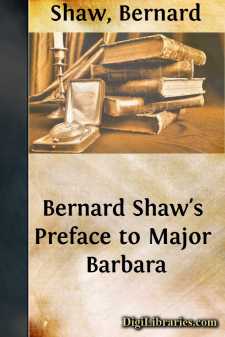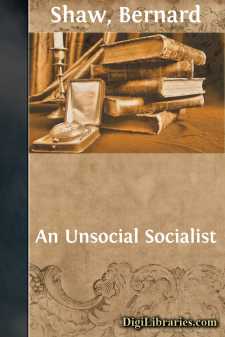Categories
- Antiques & Collectibles 13
- Architecture 36
- Art 48
- Bibles 22
- Biography & Autobiography 813
- Body, Mind & Spirit 142
- Business & Economics 28
- Children's Books 17
- Children's Fiction 14
- Computers 4
- Cooking 94
- Crafts & Hobbies 4
- Drama 346
- Education 46
- Family & Relationships 57
- Fiction 11829
- Games 19
- Gardening 17
- Health & Fitness 34
- History 1377
- House & Home 1
- Humor 147
- Juvenile Fiction 1873
- Juvenile Nonfiction 202
- Language Arts & Disciplines 88
- Law 16
- Literary Collections 686
- Literary Criticism 179
- Mathematics 13
- Medical 41
- Music 40
- Nature 179
- Non-Classifiable 1768
- Performing Arts 7
- Periodicals 1453
- Philosophy 64
- Photography 2
- Poetry 896
- Political Science 203
- Psychology 42
- Reference 154
- Religion 513
- Science 126
- Self-Help 84
- Social Science 81
- Sports & Recreation 34
- Study Aids 3
- Technology & Engineering 59
- Transportation 23
- Travel 463
- True Crime 29
Fanny's First Play
by: Bernard Shaw
Description:
Excerpt
INDUCTION
The end of a saloon in an old-fashioned country house (Florence Towers, the property of Count O'Dowda) has been curtained off to form a stage for a private theatrical performance. A footman in grandiose Spanish livery enters before the curtain, on its O.P. side.
FOOTMAN. [announcing] Mr Cecil Savoyard. [Cecil Savoyard comes in: a middle-aged man in evening dress and a fur-lined overcoat. He is surprised to find nobody to receive him. So is the Footman]. Oh, beg pardon, sir: I thought the Count was here. He was when I took up your name. He must have gone through the stage into the library. This way, sir. [He moves towards the division in the middle of the curtains].
SAVOYARD. Half a mo. [The Footman stops]. When does the play begin? Half-past eight?
FOOTMAN. Nine, sir.
SAVOYARD. Oh, good. Well, will you telephone to my wife at the George that it's not until nine?
FOOTMAN. Right, sir. Mrs Cecil Savoyard, sir?
SAVOYARD. No: Mrs William Tinkler. Dont forget.
THE FOOTMAN. Mrs Tinkler, sir. Right, sir. [The Count comes in through the curtains]. Here is the Count, sir. [Announcing] Mr Cecil Savoyard, sir. [He withdraws].
COUNT O'DOWDA. [A handsome man of fifty, dressed with studied elegance a hundred years out of date, advancing cordially to shake hands with his visitor] Pray excuse me, Mr Savoyard. I suddenly recollected that all the bookcases in the library were locked—in fact theyve never been opened since we came from Venice—and as our literary guests will probably use the library a good deal, I just ran in to unlock everything.
SAVOYARD. Oh, you mean the dramatic critics. M'yes. I suppose theres a smoking room?
THE COUNT. My study is available. An old-fashioned house, you understand. Wont you sit down, Mr Savoyard?
SAVOYARD. Thanks. [They sit. Savoyard, looking at his host's obsolete costume, continues] I had no idea you were going to appear in the piece yourself.
THE COUNT. I am not. I wear this costume because—well, perhaps I had better explain the position, if it interests you.
SAVOYARD. Certainly.
THE COUNT. Well, you see, Mr Savoyard, I'm rather a stranger in your world. I am not, I hope, a modern man in any sense of the word. I'm not really an Englishman: my family is Irish: Ive lived all my life in Italy—in Venice mostly—my very title is a foreign one: I am a Count of the Holy Roman Empire.
SAVOYARD. Where's that?
THE COUNT. At present, nowhere, except as a memory and an ideal. [Savoyard inclines his head respectfully to the ideal]. But I am by no means an idealogue. I am not content with beautiful dreams: I want beautiful realities.
SAVOYARD. Hear, hear! I'm all with you there—when you can get them.
THE COUNT. Why not get them? The difficulty is not that there are no beautiful realities, Mr Savoyard: the difficulty is that so few of us know them when we see them. We have inherited from the past a vast treasure of beauty—of imperishable masterpieces of poetry, of painting, of sculpture, of architecture, of music, of exquisite fashions in dress, in furniture, in domestic decoration....












